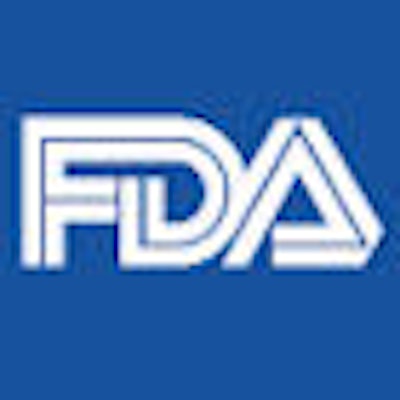
The U.S. Food and Drug Administration (FDA) is continuing to review data from published studies to evaluate whether the use of oral bisphosphonates is associated with an increased risk of esophageal cancer, the agency said in a safety announcement today.
There have been conflicting findings from studies evaluating this risk, the agency noted.
In January 2009, a case series was published describing reports submitted to the FDA of esophageal cancer in patients prescribed oral bisphosphonates (New England Journal of Medicine [NEJM], January 1, 2009, Vol. 360:1, pp. 89-90).
Since then, several epidemiological studies looking at the association between oral bisphosphonates and esophageal cancer have been published, with discrepant findings. The two largest published studies used data from the U.K.'s General Practice Research Database.
One compared the rate of esophageal cancer in patients taking an oral bisphosphonate to patients not taking an oral bisphosphonate and found no increase in the risk of esophageal cancer (Journal of the American Medical Association, August 11, 2010, Vol. 304:6, pp. 657-663). However, using the same database, a second study found a doubling of the risk of esophageal cancer among patients who had 10 or more prescriptions of oral bisphosphonates or who had taken the drugs for three years (British Medical Journal, September 11, 2010, Vol. 341:7772).
Other investigators are researching this issue. In a large cohort of Danish patients with fractures, investigators found that bisphosphonate users (who had taken them for a median of 1.5 years) had a significantly reduced risk for esophageal cancer compared to patients with fractures who had not taken any bisphosphonate (NEJM, April 23, 2009, Vol. 360:17, pp. 1789-1792).
Longer-term follow-up of alendronate (Fosamax) users and nonalendronate users showed that alendronate users had a higher frequency of endoscopic examination of the esophagus, no greater incidence of esophageal cancer, and no increase in esophageal cancer deaths (3rd Joint Meeting of the European Calcified Tissue Society and the International Bone and Mineral Society, May 2011).
"Differences in methodologies in these studies may account for the discrepant findings," the FDA noted. "Also, since these studies are observational rather than randomized, they are subject to bias and confounding."
For example, it is possible that the gastrointestinal side effects of bisphosphonates increase a patient's likelihood of undergoing an endoscopy, which could lead to earlier detection of a cancer or drug discontinuation, the agency said, adding that a present there is not enough information to make definitive conclusions about a possible association.
"At this time, FDA believes that the benefits of oral bisphosphonate drugs in reducing the risk of serious fractures in people with osteoporosis continue to outweigh their potential risks," the FDA stated.
FDA's review is ongoing, and the agency has not concluded that patients taking oral bisphosphonate drugs have an increased risk of esophageal cancer.
FDA will continue to evaluate all available data supporting the safety and effectiveness of bisphosphonate drugs and will update the public when more information becomes available.



















